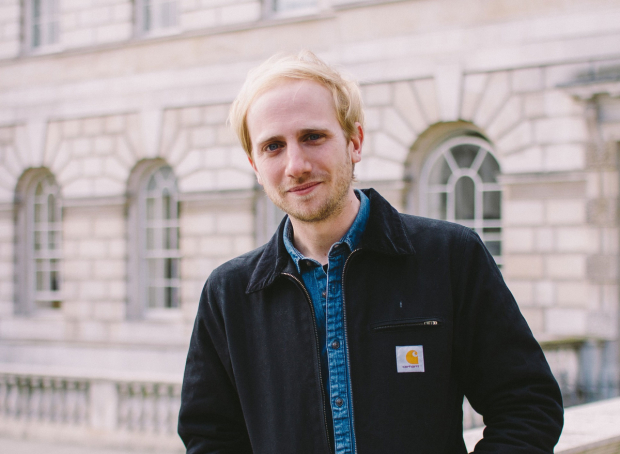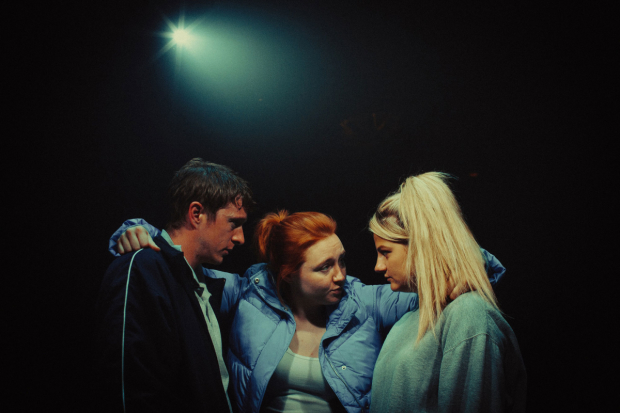Simon Longman: 'I thought Jerusalem would prompt more rural plays than it did'
The ”Gundog” playwright talks about heading to Edinburgh Festival with his new play ”Island Town”, rural plays and working with prisoners at the Royal Court

© Rebecca Need Menear
Simon Longman began focussing on writing plays at the age of 26 when he took part in the Royal Court Young Writers' Programme. He became playwright in residence with Pentabus Theatre Company who toured the UK with his play Milked in 2015. He won the Channel 4 Playwrights' Scheme in 2014, and this year won the George Devine playwriting award for his work Gundog. Gundog was commissioned by the Royal Court and directed by Vicky Featherstone and continued to explore Longman's recurring theme of the realities of living in the countryside. He's returning to the topic with his new play, Island Town, which runs at Paines Plough's roundabout space at the Edinburgh Festival this year. Here he talks about that and his work on the Royal Court's project with HM Prison Service.
How did creating work for Paines Plough's Roundabout theatre affect your writing?
It's an extraordinary space, there's not anything in there apart from voices and bodies. You have to have energy in that space. So it was good that I was commissioned in January and had to deliver in April because the horror and energy [of delivering it on time] helped me make it at a pace it needs.
Is Island Town about where you grew up?
It's not based on anywhere literally. Island Town is a response to the idea of home and the emotional geography of a space. I like writing landscapes which feel like the town I grew up in, like they are a bit out on their own and forgotten. I spend a lot of time on trains going through these pockets of small towns, which usually have a market square. I was in Shropshire for a bit and Ludlow is a pretty town, but the day tripper atmosphere fades away at night and the town feels very different.
Is it about friends in the town?
Three teenagers growing up and trying to find a place within it. The idea that you are an adult when you are 18 is rubbish. I think there's a generation who are looking at a generation above them and saying: 'They had a house and kids, that's what we're supposed to do, but we can't because the country is so broken'. It's definitely based on my personal experience of trying to work out my place in the world.
There seems to be renewed interest in stories from the countryside, why do you think that is?
Theatre turns in circles, so there are moments where there are urban stories and moments where that changes. I actually thought there would be a bit more work concerned with the countryside after Jerusalem. I thought it would allow buildings to look at the countryside but it didn't feel like that happened. There's obviously also huge interest politically in what's going on in the rest of the country. And writers and theatres are supposed to ask questions of the world and how we are divided geographically or as people.
Is it your first time with a play at the Fringe?
I'm terrified. I haven't really thought about it yet. I'm not going up for the whole month.

What made you want to join the Royal Court Writers Programme?
I never had any confidence, I was always writing smaller pieces, but it was just pages of cr*p that no one was ever going to see. It was just voices that came out of space. I moved to the country after university and had a massive 'What on earth am I going to do' moment. I did thousands of unpaid internships and got a full time job, and then had this feeling that wouldn't leave me alone. I had always wanted to do the group and back then the cut off point was 26 and so I just had an idea about two kids in a countryside trying to put down a cow. I wrote it in my lunchbreaks, that was Milked. And somehow I got onto the group.
Are you still working in your job?
No. The George Devine helped with that.
What was it like when Gundog ran at the Court?
I think I spent the whole time hiding. It was overwhelming. The cast was amazing, Vicky was amazing, the mud was amazing. It was a huge honour.
You are working on a project with Her Majesty's Prison, explain a little more about that…
The prison system is utterly broken and working within it is extraordinary. Kestrel Theatre got in touch with me about this project, Broken Dreams where basically eight men in prison devise a piece. They wanted a writer to help structure it. So we did it in November and December last year, and then we are bringing it back for a week upstairs at the Royal Court. When they were improvising, there was lots about fathers and sons, lots about wanting to be seen in a different light and showing how they were all frustrated with the system, so there was a lot to condense into one 30 minute play. I think it's the first time ever that men who are currently inside will perform at a theatre that is publicly ticketed. We are treating them like they are professional actors and they are an extraordinary mix of human beings.



















